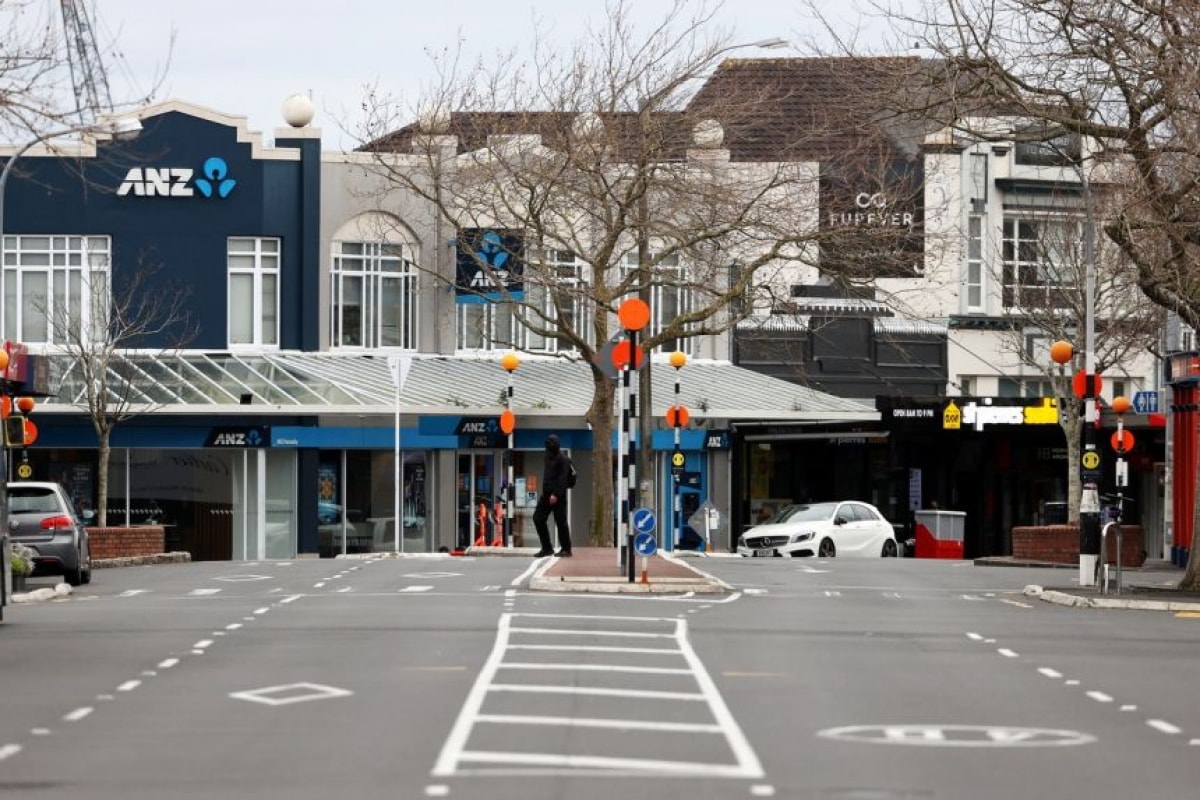Delta variant changes the fight against Covid-19: Choose to eliminate or live with the virus?
Authorities in several countries are now considering whether to continue with a "Zero Covid" strategy or prepare to live with the pandemic.
Eliminate or live with the virus?
When a caseCovid-19emerged from nowhere in New Zealand last week, the country has adopted the approach it has used since the pandemic began: a strict lockdown to try to eliminate the virus.
 |
| New Zealand implemented a lockdown from August 18 after recording 1 case of Covid-19 in Auckland. Photo: Reuters |
Stunning the world by imposing a lockdown despite only one case, New Zealand Prime Minister Jacinda Ardern said the Government saw the benefits of quickly imposing a lockdown, which has helped the country go 170 days without a Covid-19 case.
"Early decisive action has worked for us before," the New Zealand Prime Minister told reporters.
However, the country quickly realised that the Delta variant was, as Prime Minister Ardern admitted, a "game changer".
Since the first case was recorded early last week, the latest outbreak in New Zealand has grown to 210 cases. On August 25, New Zealand recorded a record 62 cases.
The worsening outbreak is leaving New Zealand facing the same challenge faced by other countries around the world as it pursues a strategy of eliminating cases.
As the Delta variant becomes dominant, it is unclear whether previous measures such as lockdowns, quarantines, mass testing and rapid contact tracing can stop the SARS-CoV-2 virus.
Authorities in countries like China and Australia are now considering whether to continue with the "No Covid" strategy."or prepare to live with the epidemic.
In Australia, the dilemma has divided the country.
New South Wales, currently dealing with a devastating outbreak, has abandoned its strategy of eliminating cases while others like Western Australia continue to pursue a strategy of getting cases to zero.
Health experts are also divided on this, although all agree that pushing ahead with a vaccination strategy is the most effective way to deal with the Delta variant, especially if state and federal authorities want to open borders.
Infectious disease expert Paul Griffin, a professor at the University of Queensland, said on August 25 that states like Queensland will face inevitable outbreaks due to gaps in quarantine or border control procedures.
"There are so many cases of Covid-19 that it's unrealistic to continue all these measures. We have a high testing rate and we need to maintain that. Mask use is also well done. But getting more people vaccinated is the key."
The Price of a No Covid Strategy
China, on the other hand, has shown it will not move away from its Zero Covid approach, despite a recent outbreak of Delta variant cases. Cases at an airport in Nanjing on July 20 prompted China to return to measures such as mass testing, quarantines and travel restrictions.
Beijing has locked down many areas as Covid-19 cases were reported, with trains, planes and long-distance buses cancelled. Travelers to the Chinese capital must present a negative test for the SARS-CoV-2 virus.
However, these measures have been effective and China recorded no domestic cases on August 22.
Chinese authorities say they will continue with their current approach, although vaccination rates continue to play a big role in the country's strategy.
Chinese epidemiologist Zhong Nanshan said last week that China needs to vaccinate more than 80% of its population to achieve herd immunity and that the milestone could be reached by the end of this year.
Similarly, Hong Kong (China) is also looking to move towards zero cases and apply one of the world's strictest border controls and quarantine measures to resume travel with mainland China.
The strategy appears to be working, with the city recording just two community cases this month and none in July.
However, travel with mainland China remains restricted due to outbreaks in the special administrative region or in mainland China.
Last week, the Hong Kong government (China) withdrew its decision to shorten the quarantine period to 7 days for vaccinated people from medium-risk areas such as Singapore or Japan.
Hong Kong also moved several countries including the US, France and Malaysia into the high-risk zone while Australia was moved from medium risk to low risk.
On August 24, Hong Kong Chief Executive Carrie Lam said the debate on pursuing a Zero Covid strategy "is not a black and white issue".
Taking Singapore as an example, Ms. Lam said that the country's vaccination rate is about 80% while the figure in Hong Kong is more than 60%.
"There is a big difference in the vaccination situation between the two places. That is probably a factor that the Singapore government has taken into account while I have to consider that we have not achieved the required vaccination rate."
Epidemiologist Ben Cowling, a professor at the University of Hong Kong, said that the goal of getting the number of cases to zero was "the optimal strategy for Hong Kong over the past 18 months".
“However, there are significant economic and social costs of a No Covid strategy and they are probably difficult to assess in the long term.”
"Public health measures have been put in place to buy time until a vaccine becomes available. Now, with the vaccine available to anyone 12 and older, I think we should have a timetable for easing public health measures in stages based on increasing vaccination rates."
Expressing a similar view, Australian Prime Minister Scott Morrison said this week that any attempt by New Zealand or other countries to continue with a Zero Covid strategy in the long term was “nonsense”.
"Any country or territory that thinks they can somewhat protect themselves from Covid-19 with the Delta variant lingering as it is now is absurd. The way to overcome the pandemic is to achieve a vaccination rate of 70-80% and open up safely./.
